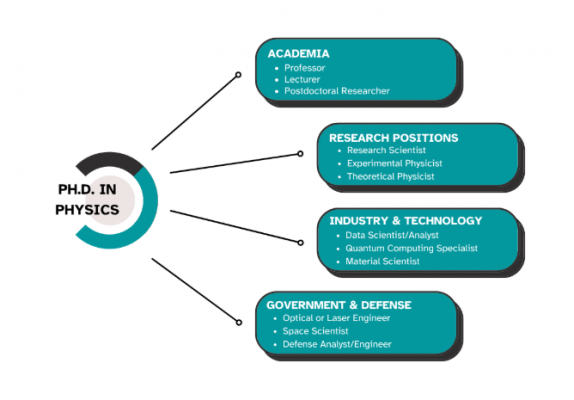Exploring the Frontiers of Space: Ph.D. in Physics Paves the Way for Next-Generation Exploration

Blog / December 08, 2024
PhD in Physics Durationphd physics syllabusphd in physicsBelieve it or not, the celestial heavens have served as a boundless canvas of mystery and wonder, inviting humanity to delve deep into the cryptic splendor and ravel their secrets. From Galileo’s telescopic observations to the epoch-defining moon landing, the human gaze has remained steadfastly fixed on the stars. In the present era, where humanity stands on the cusps of interstellar discovery, the profound and persistent quest for knowledge in physics is illuminating the path forward.
A Ph.D. in Physics is way beyond an academic milestone. It is a transmuting journey motivating scholars to decipher the universe’s most arcane secrets and lead the charge in advancing the horizon of space exploration.

The Nexus of Physics and Space Exploration
Physics forms the foundation of all space endeavors. How? It is via the lens of physics that humans understand the enormous interplay of celestial forces, the complexities of quantum mechanics, and the fundamental nature of matter and energy. Like-minded Physicists underpinning doctoral studies plunge themselves into avant-garde research areas such as astrophysics, cosmology, and particle physics.
These disciplines are not just theoretical constructs; they are the cornerstones of humans’ ability to craft innovative propulsion frameworks, harness quantum computing for steering, and predict cosmic phenomena with ultimate accuracy.
For example, contemplate the implications of dark matter and dark energy—mysterious entities constituting approximately 95% of the universe. Researchers in physics laboratories globally are decoding their secrets, transcending the boundaries of observational and experimental techniques.
Well, a Ph.D. scholar digging deep into such research contributes not only to academia but also to practical applications, such as comprehending gravitational waves and their impact on future spacecraft trajectories. On the off, if you have a keen interest in diving deep into the world of space or the cosmos, a doctoral degree in Physics will be an apt fit.
The Scope after Ph.D. in Physics
Once you earn your Ph.D. in Physics, there will be a pool of high-level roles available to you in various domains, such as academia, research, industry, and beyond. Below are some of the potential jobs you can contemplate. Have a look.
|
Category |
Role |
Primary Responsibilities |
|---|---|---|
|
Academia |
Professor/Lecturer |
Teach physics at universities or colleges, mentor students, conduct research. |
|
Postdoctoral Researcher |
Engage in specialized research projects to build expertise in your field of study. |
|
|
Research Positions |
Research Scientist |
Work in government labs, universities, or private organizations to conduct theoretical or applied physics research. |
|
Experimental Physicist |
Design and perform experiments to explore the properties of matter, energy, and physical phenomena. |
|
|
Theoretical Physicist |
Develop mathematical models and theories to explain physical phenomena. |
|
|
Industry and Technology |
Data Scientist/Analyst |
Use analytical and computational skills to solve complex problems in tech, finance, and other industries. |
|
Quantum Computing Specialist |
Contribute to the development of quantum technologies for computing and encryption. |
|
|
Material Scientist |
Research and develop new materials for applications in electronics, manufacturing, and energy. |
|
|
Optical or Laser Engineer |
Work on technologies involving light, such as lasers, fiber optics, or imaging systems. |
|
|
Government and Defense |
Space Scientist |
Collaborate with agencies like NASA or ISRO on space missions and research. |
|
Defense Analyst/Engineer |
Develop advanced technologies for national security, such as radar, sensors, and weapon systems. |
Achieve the Pinnacle of Knowledge with a Ph.D. in Physics @ Shiv Nadar University (Institution of Eminence)
Housed under the umbrella of Shiv Nadar University, the School of Natural Sciences proffers a dynamic program - Ph.D. in Physics designed to serve a broader range of research interests to prospective students. Almost more than half of the research projects are transdisciplinary in nature, compelling amalgamations across numerous departments in the School of Natural Sciences and other schools and research centers within the university.
Ph.D. in Physics: Subjects
A Ph.D. in Physics syllabus incorporates a wide range of subjects, ranging from classical mechanics to high-energy physics & beyond. These subjects entrust students’ minds with an in-depth knowledge of the fundamental physics principles & prepare them for conducting unconventional research in their various areas of interest. Additionally, some of the common Ph.D. Physics subjects are:
- Electromagnetism
- Thermodynamics
- Atomic and Molecular Physics
- Condensed Matter Physics
- Classical Mechanics
- Quantum Mechanics
- Mathematical Methods in Physics and
- Computational Physics
The Ph.D. in Physics Duration
A doctorate degree in Physics usually takes four to five years to complete. In the first two years, students complete innovative coursework followed by the researcher in a chosen field; however, the last two years are radically dedicated to dissertation research.
To Sum Up
In the grand tapestry of human progress, the exploration of space stands as a testament to the indomitable spirit as well as intellectual ingenuity. Well, earning a PhD degree in Physics can be the key to unlocking a successful career at prestigious research centers, universities, and beyond. If you're passionate about deciphering the mysteries of the universe, now is the time to take the next step in your academic journey. Enroll today at Shiv Nadar University and start your path toward groundbreaking discovery.